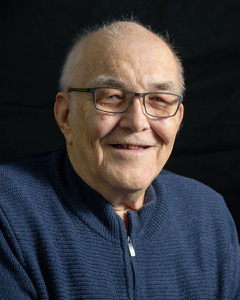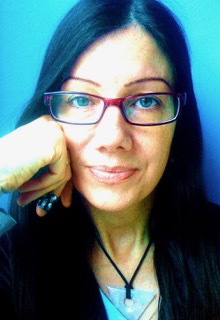by Kate Higginson, CFICE Communications Research Assistant
What does someone do after being forcibly institutionalized for 18 years because they were labelled as having an intellectual disability? In the case of Peter Park, he chose to become an advocate for other people with disabilities to make sure this inhumane treatment wouldn’t happen to anyone else. Peter co-founded the People First of Canada nearly forty years ago and helped to close Ontario’s last institution for people with developmental disabilities. Peter continues his work today advocating for the rights of people with intellectual disabilities.
Recently, Peter was part of a community-campus partnership to create a training video focused on making research more accessible.
I sat down with Peter Park to pick his brain on the term “research”, his new training video, and some tips on how to make research more accessible to individuals with intellectual disabilities.
Research is a dirty word in some circles
When asked how academics can make their research more inclusive, Peter replied, “Number one is figuring out how to phrase it so it’s not framed in the word research.” Peter added that “research is sort of a dirty word”.
Because people with disabilities have frequently found themselves as research subjects as opposed to research participants and collaborators, the term “research” can be seen as exclusionary. It’s challenging to think of a term that might replace “research” (Peter and I tried), but at the very least, it is important for researchers to know that the term may come with negative connotations for individuals with disabilities.
Of course, just because the word carries a negative connotation, that doesn’t mean that academics and people with disabilities shouldn’t team up to explore ways to make a positive impact on the lives of their peers.
For Peter, working in equitable partnerships with academics and community has been part of his advocacy work. Specifically, Peter has worked for years with Sue Hutton, Respecting Rights Coordinator with the ARCH Disability Law Centre, and together they co-founded a project called: Respecting Rights, which provides innovative, accessible rights education to persons labelled with intellectual disabilities and their support networks. Sue and Peter have also published several articles about self-advocacy in the disability community (see a recent example of their academic articles here).
Nothing about us without us! And that includes research!
Recently, Peter worked with Sue to deliver a keynote speech at the Ontario Association on Developmental Disabilities Research Special Interest Group Conference in April 2018. The theme of conference was “Research that Includes: Toward more inclusive approaches with persons with Developmental Disabilities.” For this conference, Peter and Sue designed a keynote speech titled “Nothing about us without us! And that includes research!” This speech was structured as a conversation between Peter and Sue with the purpose of “looking back and looking forward” at inclusive practices for research with people with developmental disabilities.
As part of this presentation, Anna Przednowek, a past CFICE Research Assistant (now an Assistant Professor of Social Work at Nipissing University), teamed up with Peter and Sue to create a training video based on Peter’s keynote address. The purpose was to create a video that could be publicly available and accessible to self-advocates, disability activists, students and professors teaching courses in research methods, Developmental Services Worker programs, and Schools of Social Work and Disability Studies who are committed to centering the voices of people with lived experiences and working toward promotion of inclusive research practices, social justice and human rights.
When asked about working on the video, Peter brought up the fact that it was a little scary for him at first. He didn’t know quite what to expect from the process. However, he did mention the importance of being approached right from the start of the project. This allowed for an inclusive and respectful team environment.
Encouraging inclusion in research with people with disabilities
While the training video is still in the works, Peter had a few ideas for how academics can make their research more accessible in the meantime. The first is to create content with a different point of view in mind — thinking about how one’s research will be received and understood by individuals with intellectual disabilities can be a great starting point. Writing articles or other research content in plain language is another way to make research more accessible. Sharing content in other formats such as through video or podcasts can be a good method too.
From Sue’s experience writing and doing presentation work with self-advocates, she has learned to take more of a back seat and practices “sharing the microphone” with those who’s voices should be the loudest: People like Peter who are the actual experts in the field of their lives. Sue notes that when we give self-advocates this ability to direct the research and work, innovative and more inclusive means of sharing research can develop: “Allowing self-advocates to direct us rather than us directing self-advocates is something we can all practice. Peter is the one who encouraged me to do more graphic illustrations. He requested that we have graphic note taking at meetings so that anyone who does not read would be able to review the minutes in a graphic format. When we published an article on the history of institutions together, Peter said we needed to tell his story in images, and requested we create visual artifacts of some of the more challenging experiences in the institution. Together we developed visuals to make the story accessible for those who don’t read. Without Peter’s direction, we wouldn’t have been able to reach as many people and have the impact of his story.”
Finally, Peter reminds us that remaining accountable to the community the research is trying to serve is one of the most important ways of ensuring the research stays accessible. As Peter noted, “We need something that’s real, something that people can relate to, and understand right in the moment.”
Hopefully this article serves as a reminder that we all need to continue to strive to be as inclusive in our research work as possible. And as a side note, if you come up with a better word for research, let Peter and me know!

